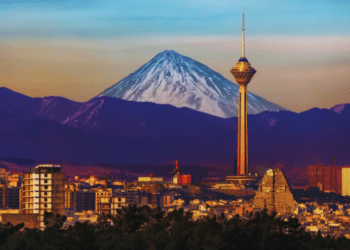February 7, 2013 – The Globe and Mail’s Margaret Wente interviews MLI author Janice MacKinnon, former Saskatchewan NDP Finance Minister, in a new commentary on health care reform. The op-ed is based on MLI’s recent study, Health Care Reform From the Cradle of Medicare, by Ms. MacKinnon. Read the full Globe and Mail op-ed below.
Saskatchewan knows what Tommy Douglas would do
By Margaret Wente, The Globe and Mail, February 7, 2013
When Janice MacKinnon teaches her course in public policy at the University of Saskatchewan, she likes to tell the story about the elderly Ontario woman who fell in the lobby of a hospital and broke her hip. (The woman had been visiting her dying husband.) Hospital staff told her that, unfortunately, they couldn’t help her until she called an ambulance to take her to the emergency room.
The story captures what’s wrong with health care in Canada – bureaucratization, rigidity in attitudes and work rules, lack of common sense. Ms. MacKinnon, a former NDP finance minister in Saskatchewan, has loads of common sense. She also has a few ideas for improving health care. Here’s one: Let private clinics, not hospitals, perform routine surgeries.
This idea is so controversial in Liberal-ruled Ontario that it’s not even on the radar. Public-sector unions and academics denounce it as the first step on the slippery slope to dismantling medicare. Yet, it’s working well in the cradle of medicare itself – Saskatchewan. “They’ve kept it very low profile,” Ms. MacKinnon tells me. “They’ve been selling it as a solution to waiting lists.”
The Saskatchewan Surgical Initiative began in 2010 as a response to long wait times for surgeries. Today, the province contracts out a growing number of procedures to private clinics. The unions (and some doctors) warned that the clinics would cost more money because the profits would be “siphoned off.” They wanted the government to expand the public system, instead.
Here’s what happened under the new system: Wait times plunged. Safety and quality improved. Overall costs for the contracted-out procedures declined by 28 per cent. The cost for some procedures was cut in half.
How is this possible? “The clinics are very focused and they only do a small number of procedures,” Ms. MacKinnon says. “They’re small and easy to manage, and they’re not unionized.” By contrast, hospitals are large, complex, inflexible bureaucracies with several different unions. “You need a huge administrative capacity just to handle the union contracts and the grievance process.”
Patients prefer the private clinics, too. They’re more convenient, and offer better service. It’s also easier to park.
But wait. What would Tommy Douglas think?
“You know, he ran a very efficient government,” Ms. MacKinnon says. “He believed in sound public services delivered efficiently. And that’s what the unions are missing. Their alternative was that we would pay more for the staffing of the facility and the public would have fewer and slower services.”
Ms. MacKinnon, a cabinet minister in Saskatchewan during the 1990s, is in the Tommy Douglas mould. She was the first finance minister in that period to balance the budget.
“The real problem is that health-care costs are squeezing out education and social services, which have important influences on health,” she says. “Tommy would not have tolerated that.”
Nor would he have tolerated the generational inequity that has become a central feature of the system. As it’s now structured, the children and grandchildren of the baby boomers will pay a large share of the boomers’ health-care costs. According to one study cited by Ms. MacKinnon, Canadians born between 1958 and 1967 will consume over $4,000 more in health-care services than they’ll pay in health-care taxes. But people born between 1998 and 2007 will pay over $18,000 more in health-care taxes than they’ll take out. And people born after 1988 will wind up paying peak taxes that are twice as high as what the boomers paid.
That’s not fair, Ms. MacKinnon says. “You can’t have a society built on the youngest members being stressed to the point where they lose hope.”
Her answer: Change the income tax system, so some of the health-care costs are borne by those who use it. She explains her reasoning in a new report, Health Care Reform from the Cradle of Medicare, published by the Macdonald-Laurier Institute. Some will say her ideas are heresy, but I think they’re common sense. As she puts it, “We can best honour the spirit and legacy of Tommy Douglas by reform.”
The Globe and Mail
—




